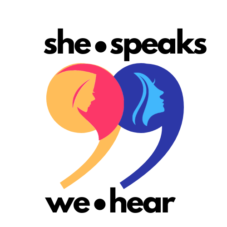On the grey morning of Sunday 5th March 2017 I left my family still snuggled in their beds to attend the inaugural Nisa-Nashim Muslim Jewish Women’s Network event at the university of Westminster. I made the solitary walk up to the station in the drizzling rain and wondered whether this was a conference relevant to me. Did I belong amongst this group of women? What would the day entail? I went with no expectations other than the hope it would be a valuable experience for me. I felt the desire to be surprised, to be challenged, to gain an insight into the flowering of a movement of diverse individuals uniting to develop a positive narrative for their communities in Britain.
I arrived and found myself drawn to the beaming faces of the attendees lining up to register for the day’s activities. I instantly felt this was going to be a day of welcome from all the women attending towards one another. Over a quick coffee I saw the room fill with women of both faiths engaged in conversations – a loud gathering of passionate women ready for a day of interfaith engagement.
The Nisa-Nashim network was created by Laura Marks and Julie Siddiqi with the aim of promoting dialogue between the British Jewish and Muslim communities. The emphasis is on Muslim and Jewish women coming to the forefront of their communities and bridging divisions armed with friendship. It was a pleasure and inspiring to listen to the personal stories of both Julie and Laura. We were urged to think of the 2017 international women’s day motto “be bold for change” as we seek to break the mistrust perpetuated by an often negative cycle of information spread across the general media landscape permeating into our daily lives. The words of Reverend Rose Hudson-Wilkin were a great addition and uplifting “…my story is your story…and your story is mine…”.

We heard from the representatives of CST and Tell MAMA who illustrated the increasing level of hate crimes and the often debilitating impact on the victims. The discussion highlighted interesting points such as the majority of hate crimes seem to be committed by white males which opens up many more questions and concerns. The message of “be upstanders not bystanders” was a very powerful and emotive one. This was a sobering and serious discussion about the challenges to personal security Jewish, Muslim and many other fellow minority communities face.
A host of talented women and organisations had put together a diverse programme of workshops such as community organising, yoga/self awareness, and faith in the media. I chose the workshop about interfaith marriage and human sexuality. A lively, illuminating, strong discussion occurred in which I found myself opening up and sharing my experiences too. This was a brilliant workshop and I am grateful to the stories, wisdom shared by women of both faiths. I was intrigued by the title ‘Scriptural Reasoning’ and found myself reading through corresponding passages from the Torah and the Quran with instructors to guide us along. It was fascinating finding the Jewish perspective enhancing the Islamic perspective of the story of Prophet Moses and vice versa. An interest in the sacred texts of the Abrahamic religions was rekindled for me and I look forward to meeting up for further reflections.
I went to the Nisa-Nashim inaugural event not knowing what to expect. It turned out to be a revelatory experience. I was inspired by the passion the speakers displayed for the work they do in their communities to promote peace. I was delighted by the strength of the friendships that exist between the women who are behind the project but also the new relationships that were forged that day. Many like me went with tentative, shy voices but left further emboldened to believe in a vision of strength in solidarity between our communities.
By Nazia
Nazia is a mother of three children. She has a degree in History (focus on modern Europe, Russia, Ottoman Empire, Origins of Islam, Mughal Empire, Middle East) from School of Oriental and African Studies London.
Image courtesy of @NisaNashim
Disclaimer: the opinions expressed in this article are solely those of the original author and do not necessarily reflect the views of the website.
